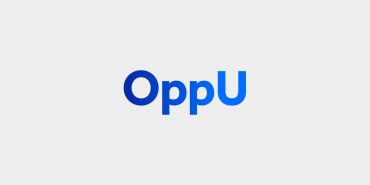9 Fun Online Courses That Teach Financial Literacy

Teens are cashing summer paychecks. College kids are paying student loans. Adults are buying houses.
No matter what stage of life you’re in, financial literacy can help. But where do you go to find a financial literacy program? Are they free? And how do you decide which one is right for you?
We compiled a list of nine financial literacy programs that have a bit of everything for everyone. Some of these programs focus on money management essentials while others take deep-dives into advanced topics. Whatever your needs might be, these programs should have something up your alley.
Looking to boost your financial literacy? Here are nine trusted programs to help you do it.
No. 1: Financial Planning for Young Adults, Coursera
Resources:
- Readings
- Quizzes
- Videos
Description:
The Financial Planning for Young Adults course was created by the University of Illinois in partnership with the Certified Financial Planner Board of Standards. It is hosted on Coursera, a free online learning platform that offers courses in a variety of subjects, including personal finance. Access to audit the course is free — simply create an account.
The course provides an introduction to financial-planning concepts. Tailored to young adults, the topics include financial goal setting, budgeting, saving and investing, borrowing and credit, and risk management. It is organized into eight modules that span a four-week timeline. Each module introduces a financial concept through videos and quizzes — encouraging discussion and real-world applications beyond the lesson.
If students are interested in becoming a financial planner, they’re in luck. The final module is devoted to exploring financial planning as a career. The module includes video interviews with CFP® professionals.
No. 2: Hands on Banking
Resources:
- Articles
- Calculators
- Quizzes
- Videos
Description:
Wells Fargo created the Hands on Banking® eLearning center to provide free financial resources. These resources are available to anyone interested in learning how to manage their finances.
Read the informative articles spanning topics like banking basics and money tips for students. Or take the self-directed courses to learn about financial management at each stage of life.
The course hub includes financial materials for adults, young adults, and students customized by grade level — elementary, middle, and high school.
No. 3: OppU
Resources:
- Articles
- Calculators
- Videos
- Worksheets
Description:
OppU — that’s us — is the financial education platform of OppLoans. We deliver a free, standards-aligned online curriculum that covers the core topics of personal finance.
All materials are free to use.
Interested in more learning opportunities? OppU publishes financial articles providing tips, resource lists, and other materials, like worksheets and ebooks.
No. 4: Personal and Family Financial Planning, Coursera
Resources:
- Readings
- Quizzes
- Videos
Description:
Are you a student interested in building an individualized personal finance plan?
Coursera offers another great personal finance course: Personal and Family Financial Planning. The course was created by the University of Florida and Michael S. Gutter, Ph.D., a professor of family, youth, and community science.
In addition to covering the basics, the course expands on the topics of investing and risk management, among others. It was designed to encourage participants to critically evaluate and change their money habits.
Although this course is advertised as open to all ages and experience levels, college-age students may receive the most value. To audit the videos, create a free Coursera account.
No. 5: Personal Finance 101: Everything You Need to Know, Udemy
Resources:
- Quizzes
- Videos
Description:
Haven’t heard of Udemy before? It’s an eLearning platform used by professionals and students. The Udemy course, Personal Finance 101, contains everything you need to know about personal finance.
The course includes 53 lectures for a total of three hours worth of video content. It’s designed with beginners in mind, teaching practical skills from taxes to credit cards. Don’t worry, hard math skills aren’t required.
All you need to do is create a free Udemy account to access this course.
No. 6: Introduction to Personal Financial Planning, edX
Resources:
- Discussions
- Quizzes
- Videos
Description:
If you haven’t created a free edX account yet, what are you waiting for? The edX platform contains thousands of eLearning videos.
The Introduction to Personal Financial Planning, edX course is made possible by the Brian and Sheila Jellison Family Foundation. It contains four independent modules: credit, investments, insurance, and retirement.
This personal finance course explores real-world examples and practical solutions to financial problems. Even if the solutions aren’t applicable to your daily life — as they vary in relevance based on your age and priorities — you may learn at least one new thing.
No. 7: Saving and Budgeting, Khan Academy
Resources:
- Articles
- Exercises
- Videos
Description:
Khan Academy offers online personalized learning materials to empower students outside of the classroom. Their eLearning courses are full of practical exercises, real-world applications, and instructional videos.
Check out Khan Academy’s Saving and Budgeting unit for a brief overview of how to manage your finances. Learners will start by identifying their overarching financial goals. Answer a few questions to determine your priorities. Then, create a budget backed by basic strategies for financial management.
The best part is that eLearning at Khan Academy is free. That means endless browsing in the platform’s library of trusted articles, videos, and exercises.
No. 8: Smart About Money, NEFE
Resources:
- Articles
- Calculators
- Quizzes
- SAM courses
- Worksheets
Description:
The National Endowment for Financial Education (NEFE) is a nonprofit dedicated to financial empowerment. The NEFE’s Smart About Money (SAM) program is an expert-backed financial education resource free to all consumers.
SAM offers personal finance courses complete with quizzes, calculators, worksheets, and additional reading materials. This makes it a great digital resource for young adults interested in pursuing financial health and wellness. Be sure to check out the education and career-related articles, which provide tips on back-to-school budgets and saving for college.
No. 9: Credit union programs
Resources:
- Seminars
- One-on-one counseling
- Online modules
Description:
As of 2019, there are more than 6,000 credit unions across the United States, with one likely near you. Take advantage of in-person and online programming tailored to all ages and knowledge levels. Depending on the credit union, resources may be free to members and those in the community.
Don’t have a credit union nearby? Keep in mind that banks also have financial education programs. Here are a few to check out:
- Bank of America: Better Money Habits
- Wells Fargo: Hands on Banking
- PNC Bank: Financial Literacy 101
- TD Bank: Finance 101 and WOW!Zone
- Fifth Third Bank: L.I.F.E. program
The bottom line
Studies paint a grim picture of financial literacy. Although the focus is often on kids, it turns out adults need money management, too. From paying bills to saving for the future — adults constantly make decisions that require the skills and knowledge gained from financial literacy. If you don’t have the time to continue education as an adult, opt for online financial literacy resources.
Educational materials are available online as articles, downloadables, and courses — accessible anywhere, anytime. Many are instructed by leading educators and experts. And they cover a variety of topics within personal finance — from debt to retirement.
When it comes to financial literacy, you’re never done learning — no matter your age.
Educators and parents can use eLearning to help young adults supplement their education. Check out these resources for free and fun personal finance lessons that students can complete at home.
Please note the below article contains links to external sites outside of OppU and Opportunity Financial, LLC. These sources, while vetted, are not affiliated with OppU. If you click on any of the links you will be sent to an external site with different terms and conditions that may differ from OppU’s policies. We recommend you do your own research before engaging in any products or services listed below. OppU is not a subject matter expert, nor does it assume responsibility if you decide to engage with any of these products or services.





